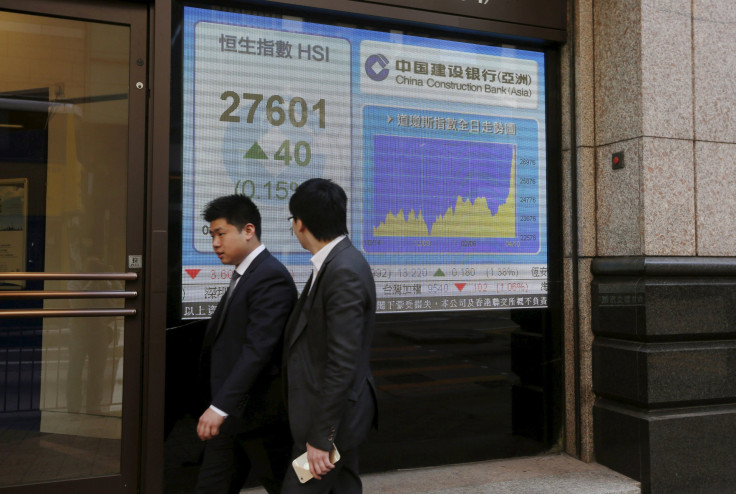Investors Warn Of 'Irrational Exuberance' In Chinese Stock Markets

Managers of some of the world’s largest assets are sounding alarms over China’s explosive stock markets, which have seen trading volumes inch so high this week that trading software has literally failed to compute total turnover.
Laurence Fink, chief executive of BlackRock, which manages $4.8 trillion, warned, “Right now, we are experiencing typical boom-bust. Let's hope it doesn't end poorly.” The comments, reported by Reuters, add to a growing chorus of concern over China’s overheated and volatile markets.
Hugh Young, a managing director for Aberdeen Asset Management’s Asia division, told Reuters the market is behaving “a bit like a casino.”
The Shanghai Stock Exchange Composite Index has more than doubled in the past 12 months, buoyed by millions of amateur investors piling for the first time into stock market speculation. Recent signs of economic slowdown in China have only added to the boom, as investors bet on the state easing lending to spur growth.
Valuations for companies in the Shanghai exchange have stretched from around 10 times forward earnings to more than 30 times forward earnings, with some companies exceeding multiples of 100 or more. The median company in the Standard & Poor's 500 index trades at 18 times its future earnings per share.
Western investors aren’t the only ones raising red flags over Chinese markets. The state-run Xinhua News Agency warned this week of “irrational exuberance” -- a phrase made famous by former Federal Reserve Chairman Alan Greenspan to describe the dot-com bubble.
Chinese authorities have tried to pump the breaks on the markets by issuing tighter curbs on margin lending, in which investors borrow against their holdings in order to invest more. The proportion of publicly traded Chinese stocks bought on borrowed cash has grown roughly eightfold since 2013.
© Copyright IBTimes 2024. All rights reserved.





















